BEAUTY
What You Need For A Glowing Skin In Nigeria
Published
7 months agoon
By
wpadminee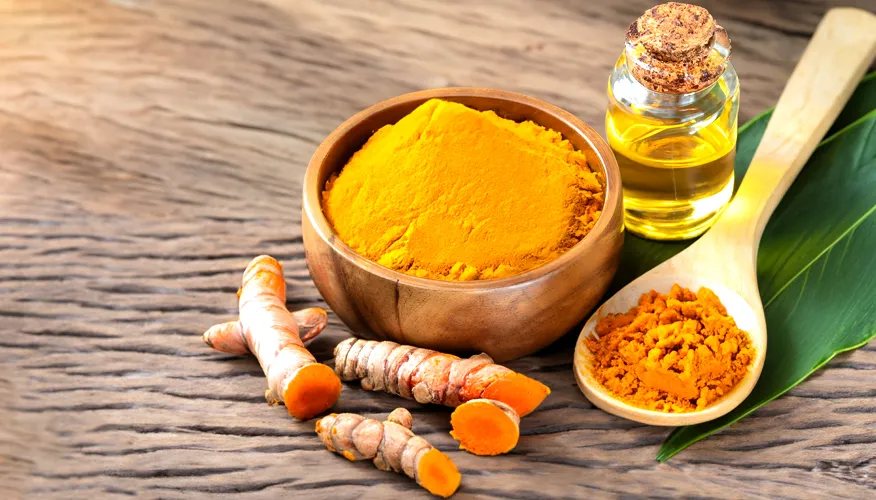
Do you ever look in the mirror and wish for that glowing, radiant skin in Nigeria, the kind that seems to shine with health and vitality from within? Many of us have been there, longing for that natural glow that boosts our confidence and makes us feel beautiful.
The good news is that achieving glowing skin in Nigeria doesn’t require expensive products or complicated routines. With simple, natural ingredients available right in your home, you can start your journey toward a brighter complexion today.
Skincare doesn’t have to be complicated, especially when Nigeria is blessed with an abundance of natural ingredients that have been used for centuries. These simple remedies can be found in your kitchen or backyard.
They are not only effective but free from harsh chemicals and artificial additives. For anyone looking for a natural skincare routine, glowing skin in Nigeria is easily achievable. By embracing these traditional methods, you can achieve it.
What do you need to achieve glowing skin in Nigeria?
A variety of home remedies can help you achieve glowing skin in Nigeria. Aloe vera, for instance, is known for its soothing and hydrating properties, while citrus fruits brighten and revitalize the complexion.
Honey and oatmeal are excellent exfoliants, gently removing dead skin cells to reveal a fresh, glowing surface. These ingredients have stood the test of time in Nigeria. They prove that nature offers all we need for healthy skin.
Beyond these familiar remedies, Nigeria’s rich beauty traditions involve native herbs, spices, and homemade masks. These natural treatments, passed down through generations, continue to enhance skin health and brighten complexions.
Using these resources, you can easily make scrubs and masks at home. Further, harnessing the power of glowing skin in Nigeria.
Achieving radiant skin also involves a balanced skincare routine. You can nourish your skin with olive oil and lemon juice, both known for their moisturizing and brightening properties.
Coconut oil, with its deep moisturizing and anti-ageing benefits, is another powerful ingredient. These simple additions to your routine will help maintain glowing skin in Nigeria, keeping your skin soft, smooth, and youthful.
So, if you’re ready to uncover the secrets to radiant skin without relying on commercial products, look no further. Glowing skin in Nigeria is within your reach, and it all starts with natural ingredients.
What are the natural ingredients for glowing skin in Nigeria?
Achieving radiant skin is a goal many aspire to, and in Nigeria, various natural ingredients can help you achieve that coveted glow. Let’s delve into the benefits of these powerful, locally sourced elements and discover how they can transform your skincare routine for glowing skin in Nigeria.
The Role of Aloe Vera and Citrus Fruits

Aloe vera is a highly versatile plant used for centuries for its soothing and healing properties. In skincare, aloe vera provides essential hydration and helps heal the skin, making it an excellent moisturizer.
Its gel-like consistency can calm irritation and reduce inflammation, leaving your skin refreshed and rejuvenated. Incorporating aloe vera into your skincare routine can significantly enhance your journey to glowing skin in Nigeria.
Citrus fruits like lemons and oranges are rich in vitamin C, which acts as a natural exfoliant. Vitamin C helps remove dead skin cells and promotes a brighter complexion.
The citric acid in these fruits balances the skin’s pH levels and minimizes blemishes. Including citrus fruits in your skincare regimen can help you achieve that radiant, glowing skin in Nigeria, thanks to their powerful brightening effects.
Benefits of Honey and Oatmeal for Glowing Skin in Nigeria
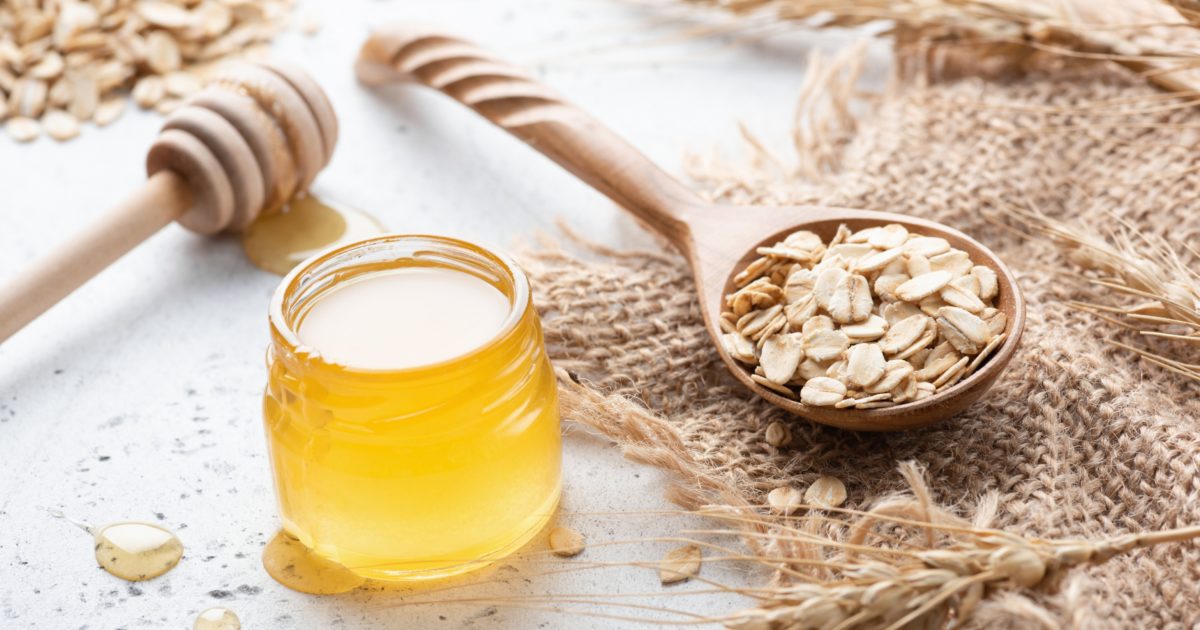
Honey has long been a staple in skincare for its moisturizing and antibacterial properties. It nourishes and hydrates the skin, leaving it soft and supple. With its antioxidant qualities, honey also protects the skin from damage caused by free radicals.
When used as an exfoliant, honey gently removes dead skin cells, revealing a smoother and healthier complexion. Adding honey to your skincare routine is a natural and effective way to achieve glowing skin in Nigeria.
Oatmeal, another excellent natural exfoliant, has a gentle texture that effectively removes dead skin cells without irritating them. It also possesses anti-inflammatory properties that soothe and calm the skin, making it an ideal ingredient for those with sensitive skin. Regular use of oatmeal in your skincare can improve skin texture and promote glowing skin in Nigeria.
DIY Beauty Treatments with Local Nigerian Ingredients
Nigerian beauty traditions have long embraced the benefits of native herbs and spices for skin care. By incorporating these easily accessible ingredients into DIY beauty treatments, you can harness their natural goodness for glowing skin in Nigeria.
Utilizing Native Herbs and Spices
Native herbs and spices like turmeric, ginger, and moringa are known for their healing and rejuvenating properties. Including these ingredients in your homemade skincare routine can improve skin texture and promote a natural glow.
- Turmeric: With its anti-inflammatory and brightening properties, turmeric helps reduce redness and even out skin tone. Combine turmeric powder with yoghurt or aloe vera gel to create a brightening face mask.
- Ginger: Packed with antioxidants, ginger improves blood circulation and imparts a healthy glow. Use grated ginger in a facial steam or create a ginger-infused oil to rejuvenate the skin.
- Moringa: This nutrient-dense herb is full of vitamins and antioxidants that nourish and protect the skin. Add moringa powder or oil to your DIY face masks or scrubs for a natural anti-ageing effect.
Homemade Brightening Masks and Scrubs for Glowing Skin in Nigeria
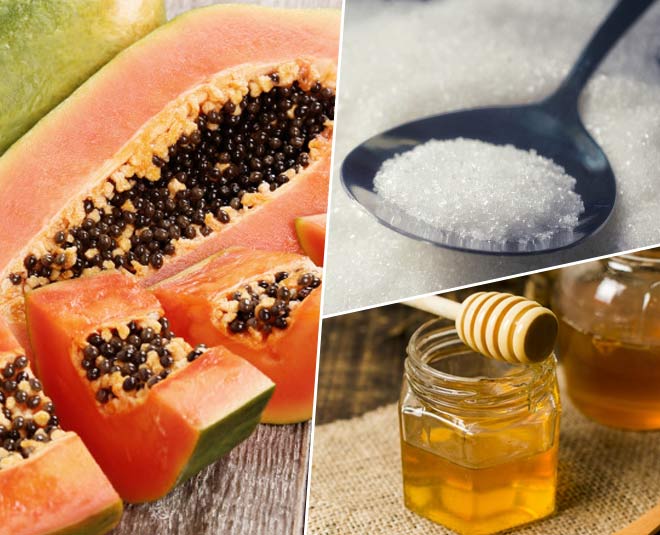
Homemade masks and scrubs using local Nigerian ingredients are highly effective in brightening the skin and enhancing its texture. These DIY treatments gently exfoliate, moisturize, and revitalize your skin, leaving it smooth and glowing.
- Papaya mask: Papaya’s natural enzymes gently exfoliate the skin, revealing a brighter complexion. Mash ripe papaya and mix it with honey to create a nourishing and brightening face mask.
- Honey and rice scrub: Combine honey and rice powder for a rejuvenating scrub that buffs away dead skin cells, leaving the skin soft and radiant. Honey acts as a natural humectant, while rice powder provides gentle exfoliation.
By incorporating these DIY beauty treatments with local Nigerian ingredients into your skincare routine, you can achieve glowing skin in Nigeria without relying on commercial products.
Embrace the power of nature and unlock the beauty secrets hidden in your pantry to reveal a radiant and healthy complexion.
If you enjoyed this article on skincare, you have more to enjoy here.
You may like
-
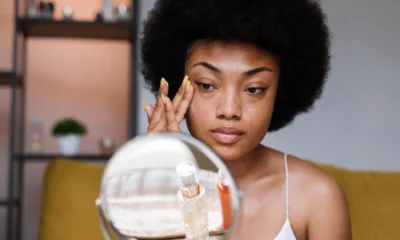

Want To Maintain Your Natural Beauty? See 5 Products To Use
-
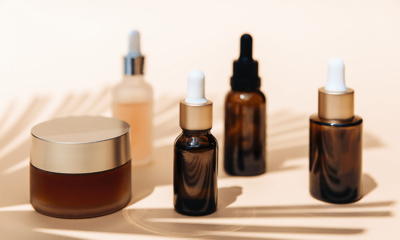

7 Perfect Skinimalism Products For Skincare
-
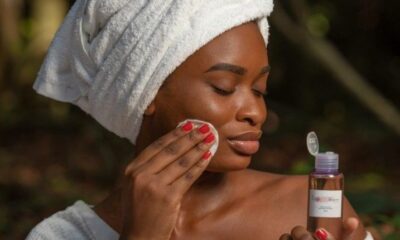

Check Out This Ultimate Guide To Current Beauty Trends
-
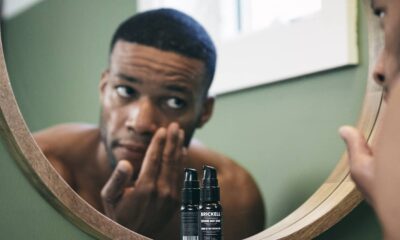

5 Products Every Man Needs For Healthy Skin Glow
-
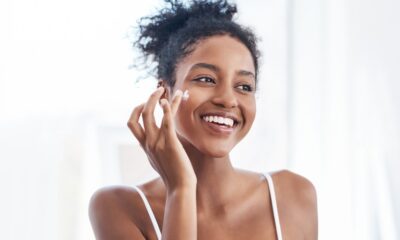

5 Steps To Maintaining Skin Beauty
-
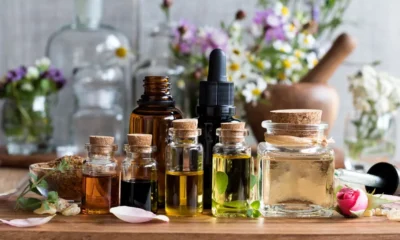

Beyond Coconut, Here Are 7 Other Natural Oils For Smooth And Radiant Skin
BEAUTY
Trying These Would Make Your Synthetic Or Human Hair Wigs Luscious & Beautiful
Published
4 months agoon
December 21, 2024By
wpadminee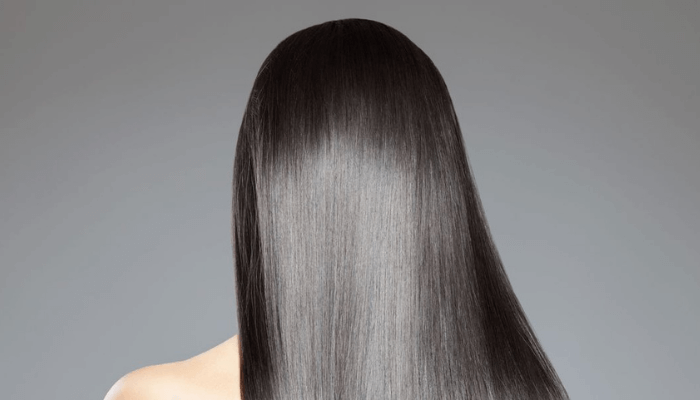
Wigs, whether synthetic or made from human hair, are versatile tools for styling, enhancing your look, or providing a confidence boost.
However, keeping them luscious and beautiful requires proper care and maintenance. Here are effective methods to maintain your wigs and ensure they stay gorgeous.
1. Understand the Material of Your Wig
Synthetic wigs and human hair wigs have different care needs. Synthetic wigs are more affordable and pre-styled, while human hair wigs offer a natural look and greater styling flexibility.
Knowing the material of your wig will guide you in choosing the right products and care methods to keep it luscious and beautiful.
2. Wash Your Wigs Properly
Proper washing is essential to maintain the beauty of both synthetic and human hair wigs:
- Synthetic Wigs: Wash them every 8–10 wears using cool water and specialised wig shampoo. Avoid rubbing or twisting the fibres to prevent tangling and damage.
- Human Hair Wigs: Wash them less frequently, about every 10–15 wears, with sulphate-free shampoos and conditioners. Always rinse with lukewarm water and pat dry gently.
Both types benefit from air drying on a wig stand, as this helps preserve their shape and style.
3. Detangle Before and After Use
Use a wide-tooth comb or wig-specific brush to gently detangle the strands. Start at the tips and work upward to the roots. For synthetic wigs, this prevents breakage, while for human hair wigs, it helps maintain natural smoothness.
4. Conditioning is Key
- Synthetic Wigs: Use wig conditioners designed for synthetic fibres. Focus on the ends, as they are more prone to dryness.
- Human Hair Wigs: Apply leave-in conditioners or serums to keep the strands soft and shiny.
Conditioning ensures your wigs remain luscious and beautiful over time.
5. Store Wigs Properly
Proper storage prevents tangling and helps maintain the style. Use a wig stand or a mannequin head. If you need to travel, pack your wig in a silk or satin bag to reduce friction and keep it looking fresh.
6. Use Heat Carefully
Synthetic wigs are generally heat-sensitive, so avoid styling them with heated tools unless they are heat-resistant. For human hair wigs, use heat tools sparingly and always apply a heat protectant to prevent damage.
7. Avoid Excess Shine on Synthetic Wigs
Some synthetic wigs may appear overly shiny. To reduce the artificial gloss, lightly dust them with baby powder or dry shampoo. This technique gives synthetic wigs a more natural and luscious appearance.
8. Refresh and Restyle Regularly
- Synthetic Wigs: Use styling sprays made specifically for synthetic fibres to refresh the look.
- Human Hair Wigs: You can curl, straighten, or colour them like natural hair, but ensure you use professional-grade products.
Frequent restyling keeps your wigs attractive and aligns them with current trends.
9. Rotate Between Wigs
Having multiple wigs allows each to rest and regain its form, extending its lifespan. Alternating between wigs also gives you variety and reduces wear and tear on a single piece.
10. Seek Professional Care
For extensive maintenance or restyling, consider taking your wig to a professional. Experts can deep-clean, restore, and even repair damages to both synthetic and human hair wigs, ensuring they stay luscious and beautiful for years.
By following these tips, you can ensure your synthetic and human hair wigs remain in excellent condition, radiating beauty and confidence every time you wear them.
Proper care not only extends their lifespan but also enhances your overall appearance, making every day a fabulous hair day.
For more articles on beauty, you can explore resources here.
BEAUTY
Nigerian Model, Samuel Nwajagu Becomes First African To Win Mister International Title
Published
4 months agoon
December 16, 2024By
Reporter
Nigerian model Samuel Nwajagu made history by becoming the first African to win the prestigious Mister International title.
This landmark achievement occurred during the 16th edition of the pageant, held in Bangkok, Thailand.
The event saw 47 contestants from around the globe, including debutant countries like Cameroon, England, Benin Republic, and Mali, competing for the coveted title.
Mister International, regarded as one of the largest male beauty pageants globally, is second only to Mister World in terms of national-level participation.
Since its establishment in 2006 by the late Alan Sim in Singapore, the competition has grown to attract participants from over 80 countries, with an annual average of 38 contestants.
This year’s competition incorporated several activities, from city tours to preliminary rounds showcasing physical fitness, cultural attire, and formal wear.
Contestants also faced topical questions, allowing them to display their intelligence, confidence, and charisma.

Nwajagu’s remarkable poise and versatility set him apart, ultimately earning him the title. He triumphed over Nguyễn Mạnh Lân from Vietnam and Glenn Victor Sutanto from Indonesia, who were among the top finalists.
Kim Thitisan Goodburn, the 2023 Mister International winner, passed on the crown to Nwajagu, symbolising the continuity of excellence in the competition.
Notably, the 2024 pageant marked a historic shift by permitting fathers, married men, and divorced individuals to compete for the first time in its 16-year history.
Hailing from Anambra State, 23-year-old Samuel Nwajagu is celebrated for his dedication to fashion, fitness, and wellness.
His victory not only highlights his talent but also underscores Africa’s growing representation on the global stage of pageantry. Through determination and charisma, Nwajagu’s success is an inspiration for aspiring models across the continent.
Check out more updates here.
ARTS & CULTURE
Does Anklet Really Signify Promiscuity?
Published
4 months agoon
December 7, 2024By
wpadminee
What is an anklet?
An anklet is a versatile piece of jewellery that women typically wear around their ankles. Crafted from materials like chains, beads, or a mix of both, anklet meanings vary across cultures and styles.
Many fashionable women choose anklets to make a bold style statement, embracing their elegance and charm.
In Nigeria, people often call this accessory a “leg chain” or “ankle chain,” reflecting its cultural relevance. In pop culture, it’s popularly known as an “ankle bracelet.”
Anklets here focus more on fashion than symbolism, though interpretations can differ. With various styles and intricate designs available, anklets offer countless aesthetic options, allowing women to showcase their personal flair.
Ultimately, anklet meanings can be deeply personal, influenced by tradition, culture, or simply individual taste.
Cultural and Historical Significance
Throughout history, anklets have held different meanings across various cultures. While some view them as mere adornments, others have associated them with deeper, sometimes controversial, connotations.
In some societies, ancient and modern, anklets symbolise promiscuity.
Early Usage in Ancient Civilisations
Egypt is often credited as the birthplace of anklets, but India played a significant role in their widespread acceptance. In India, anklets were part of traditional attire, known as pattilu, payal, or nupu.
These terms also include Paujinupur and padapadma. Early Indian literature, such as the first-century epic Silappatikaram, mentions anklets, highlighting their cultural importance.
Rajasthani women were known for their elaborate anklet designs, reflecting regional traditions.
Among the Odisha people, gold anklets were once reserved for warriors, while brides included them as part of their wedding regalia.
Married women often wore anklets to signify their marital status, and dancers used those with dangling bells to enhance their performances.
Similarly, in ancient Egypt, anklets indicated social status. Wealthy women wore gold anklets, while silver or leather versions were common among slaves and the poor.
These accessories, known as menefret or kholkai, reflected one’s place in the social hierarchy. Interestingly, some accounts suggest that anklets were linked to temple worshippers and even prostitutes, though these claims remain largely unverified.
Modern Evolution and Symbolism
Over time, the meaning of anklets has evolved significantly. In the 1970s, during America’s “sexual revolution,” anklets became symbols of female empowerment and liberation.
This era emphasised women’s freedom to express themselves, including their sexuality. Consequently, anklets began to carry connotations of promiscuity, especially within the “hotwife” culture.
The “Hotwife” Phenomenon
A “hotwife” refers to a married woman who engages in consensual extramarital relationships with her husband’s approval. Various anklet symbols reflect this dynamic:
- Two male symbols and one female symbol: Indicate openness to relationships with men of any race.
- Queen of spades: Represents a preference for Black men.
- Heart symbol: Suggests a happy marriage that includes mutually beneficial intimate relationships outside the primary partnership.
- The key to happiness: Denotes a marriage where the husband’s extramarital activities are contingent on his wife’s consent.
Anklets in Contemporary Nigerian Fashion
Today, many Nigerian women wear anklets purely for their aesthetic appeal, often unaware of the historical or cultural associations. For them, anklets are fashion accessories, not symbols of promiscuity or class distinction.
Despite lingering societal judgments, especially within conservative African contexts, it’s essential to recognize that fashion choices are personal.
Women should not face harsh criticism for wearing anklets, as these judgments stem from outdated or culturally irrelevant perspectives.
In conclusion…
Anklets are versatile fashion pieces that have transcended their historical roots. While some cultural connotations persist, modern women wear anklets to express their style and individuality.
It is crucial to separate fashion from judgement and allow women the freedom to make their own choices about their bodies and accessories.
Let’s appreciate anklets for what they are today: beautiful, empowering symbols of self-expression.
Read more articles here.
Latest


Samsung Galaxy S25 Series Sets The Standard Of AI Phones As A True AI Companion
Samsung Galaxy S25 series sets the standard of AI phones as a true AI companion …Pioneering the multimodal era with...


5 Things To Expect In Afrobeats In 2025
Afrobeats is poised to reach unprecedented heights in 2025 as Nigerian music continues its remarkable global ascent. The genre’s explosive...


Here Are The 7 Most Ancient Countries On Earth
The oldest countries in the world stand as remarkable testaments to human civilisation, each containing landscapes and monuments that narrate...


Why Self-Reflection Is More Important Than Resolutions
Millions of people embark on a yearly ritual: they sit down with a notebook and pen, eager to craft a...


Nollywood Director, Kemi Adetiba Teases King Of Boys 3
Nollywood director Kemi Adetiba has revealed that another instalment of King of Boys will be released on December 25, 2025....


John McEnroe Says He Can Be The Commissioner Tennis Needs Amid Doping Crisis
Recent doping controversies involving top players have not damaged tennis’s reputation, but John McEnroe believes that appointing a single commissioner...


“Everybody Loves Jenifa” Becomes Nollywood’s Highest-Grossing Film Of All Time
Nollywood filmmaker Funke Akindele has achieved a historic milestone with her latest film, “Everybody Loves Jenifa.” The film has officially...


FG To Premiere TV Series, “Hidden Riches” On Mining Sector On January 25
Nigeria’s Federal Government will launch an ambitious television drama series focused on the nation’s mining sector, premiering “Hidden Riches” on...


Qing Madi Delivers A Soulful Performance Of “Favourite Pyscho”
Rising Afro-RnB sensation Qing Madi launches into 2025 with a mesmerising performance on the prestigious COLOURS platform, showcasing her latest...


Taiwo Awoniyi’s First Goal Of The Season Seals Nottingham Forest’s Win Over Wolves
Taiwo Awoniyi made a triumphant return to Premier League action. He scored in stoppage time to help Nottingham Forest crush...
-Ad-




